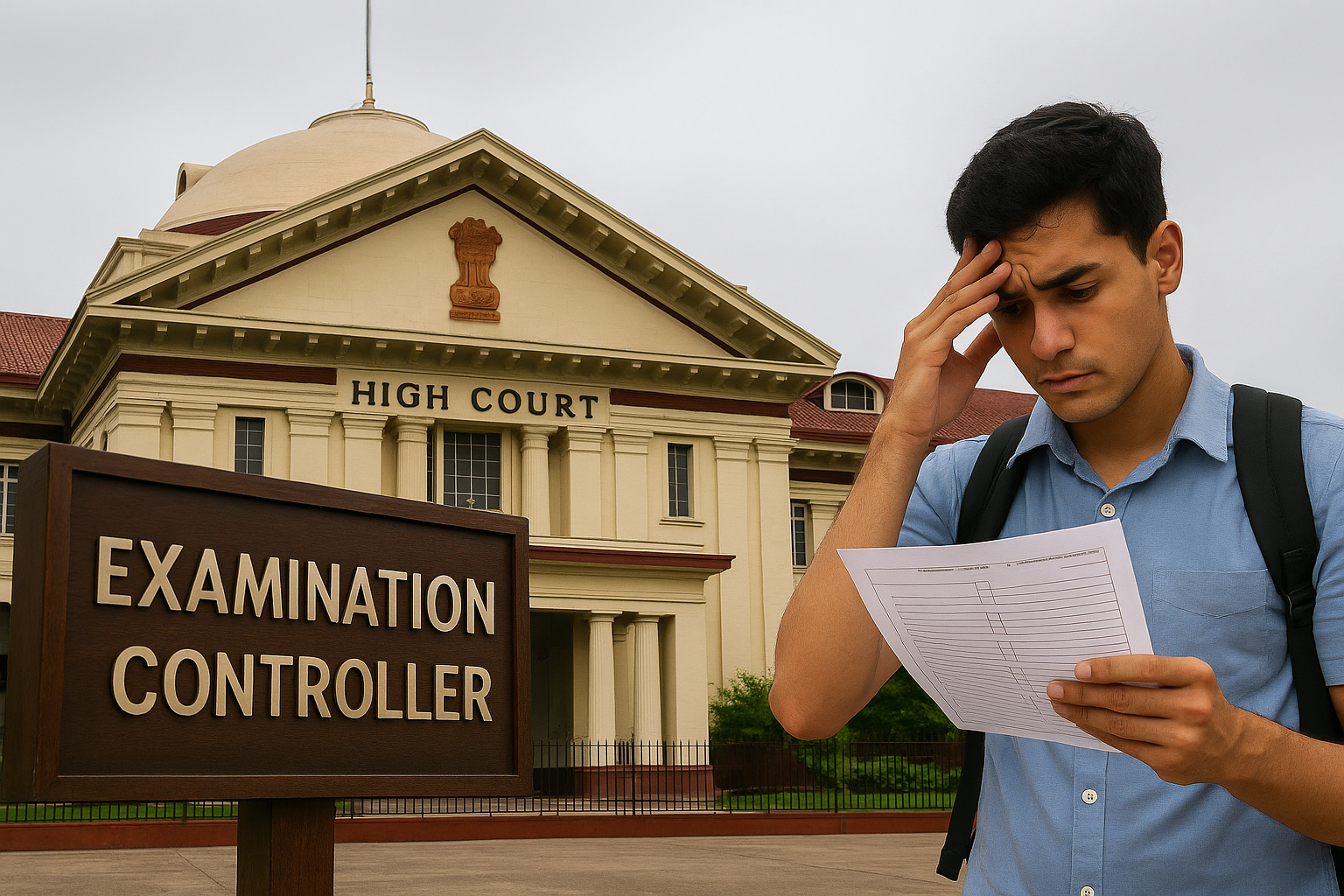Simplified Explanation of the Judgment
In a landmark decision, the Patna High Court dismissed a series of appeals filed by Arayabhatta Knowledge University against medical students accused of using unfair means during their MBBS examinations. The university had canceled the results of these students and barred them from appearing in further exams, based solely on a belated report from an invigilator. The High Court found the university’s actions arbitrary and lacking in procedural fairness.
The case involved multiple students who were alleged to have cheated during the second semester of their MBBS examination. Allegations ranged from possessing unauthorized chits to having mobile phones during the examination. However, crucially, the invigilator who made the accusations neither seized the evidence at the time nor stopped the students from continuing with their exam. Instead, the complaints were submitted after the exams had concluded.
The university’s Unfair-Means Committee acted upon these belated complaints without independently verifying the facts or identifying the specific regulations violated by each student. The committee’s reports were vague, lacked detail, and did not convincingly establish the guilt of the students. Consequently, the university canceled their results and barred them from future examinations for that academic year.
When the matter was brought before a Single Judge of the Patna High Court, the judge found that the process adopted by the university was flawed. The decision to penalize the students was based solely on uncorroborated invigilator reports and lacked concrete evidence such as seized mobile phones or chits. The learned judge observed that allowing students to finish the exam despite the alleged misconduct contradicted the seriousness of the charges. As such, the court directed the university to publish the students’ results.
The university then filed appeals challenging the Single Judge’s order. In dismissing these appeals, the Division Bench, comprising Hon’ble Mr. Justice Ashutosh Kumar and Hon’ble Mr. Justice Jitendra Kumar, emphasized several key legal and procedural deficiencies in the university’s handling of the matter.
The Court observed that:
- The Unfair-Means Committee did not clearly specify what misconduct each student was charged with.
- The committee failed to align its findings with the relevant provisions of university regulations.
- The entire process appeared mechanical and lacked application of mind.
- No evidence was seized at the time of the alleged incident, weakening the case substantially.
The judges also criticized the rationale provided by the university that invigilators avoided immediate confrontation to prevent chaos in the examination hall. The Court held that such fear cannot justify a failure to act responsibly or to follow due process.
Significance or Implication of the Judgment
This judgment has far-reaching implications for educational institutions across Bihar and India. It reaffirms the principle that allegations of misconduct—especially those that can damage a student’s academic and professional future—must be supported by clear evidence and fair procedure.
Educational authorities must ensure that disciplinary committees operate transparently and respect natural justice. Simply relying on unverified allegations or procedural shortcuts cannot justify harsh penalties like cancellation of exam results or academic suspension.
This decision also reassures students that courts are willing to intervene when internal mechanisms in educational institutions fail to uphold fairness, especially in cases involving serious academic charges.
Legal Issue(s) Decided and the Court’s Decision with reasoning
- Whether a university can cancel examination results solely based on unverified post-exam allegations
❖ Court’s Decision: No. Cancellation must be based on properly recorded and evidenced findings. - Whether the Unfair-Means Committee acted in accordance with university regulations
❖ Court’s Decision: No. The committee failed to specify what provisions were violated and did not provide individualized reasoning. - Does the absence of seized evidence (like chits or mobile phones) weaken the credibility of the charges?
❖ Court’s Decision: Yes. The lack of material evidence and delayed reporting made the accusations untenable. - Can fear of disruption justify not intervening during the exam?
❖ Court’s Decision: No. Fear of backlash cannot be an excuse for failing to act or gather evidence.
Judgments Referred by Parties (with citations)
- Board of High School and Intermediate Education, U.P. Allahabad & Anr. v. Bagleshwar Prasad & Anr., AIR 1966 SC 875
- Prem Parkash Kaluniya v. Punjab University & Ors., (1973) 3 SCC 424
- Controller of Examinations & Ors. v. G.S. Sunder & Anr., 1993 Supp (3) SCC 82
Judgments Relied Upon or Cited by Court (with citations)
- Same as above (these were cited in support of the university’s position but critically analyzed and distinguished by the Court).
Case Title
Arayabhatta Knowledge University & Ors. vs. [Multiple Respondents – MBBS Students]
Case Number
LPA Nos. 227, 226, 237, 241, 244, 247, and 252 of 2020
Coram and Names of Judges
Hon’ble Mr. Justice Ashutosh Kumar
Hon’ble Mr. Justice Jitendra Kumar
Names of Advocates and who they appeared for
- Mr. Anand Kumar Ojha – For the University (Appellants)
- Mr. Priyank Deepak – For the University (in some appeals)
- Mr. Awadhesh Kumar – For the University (in some appeals)
- Advocates for the Respondents – Not mentioned in the order
Link to Judgment
https://www.patnahighcourt.gov.in/ShowPdf/web/viewer.html?file=../../TEMP/9ec09a7c-43a7-4385-9ee3-6f1e5b64a596.pdf&search=Debarment
If you found this explanation helpful and wish to stay informed about how legal developments may affect your rights in Bihar, you may consider following Samvida Law Associates for more updates.









